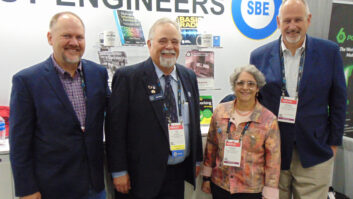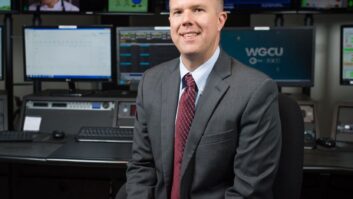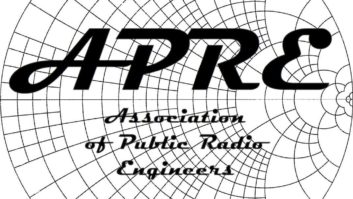The U.S. radio broadcast industry has long embraced the sagacity of engineering elders and treasured their technical advice and memories. But it also often laments a lack of younger blood. According to common wisdom, radio engineering heads are mostly gray; and when those retire, who will keep the industry humming?

Kelsey Black, Scripps Media Inc. “I see the structure of my job now and in the future as still being very fluid, compared to those who may have only had a studio and transmitter group under their responsibility.” Radio World here begins a series of articles about engineers under 40 who are helping to answer that question.
Name: Kelsey Black, 35
Company/title: Scripps Media Inc. Boise, Chief Engineer — Radio
City: Boise, Idaho
Certifications/memberships: SBE member, FCC Amateur General License
How did you get into the field of radio/broadcast engineering?
Kelsey Black: In high school my family was operating a two-screen movie theater in Willcox, Ariz., and I was the projectionist/technician. My mother was the general manager. She purchased some airtime for spots at the local AM/FM combo station. I was very excited, and I installed Cool Edit Pro on my home computer, produced a couple spots and took them to the radio station. The radio station happened to be hiring for a full-time traffic manager position, and I was hired on the spot.
How do you think your age affects your approach to your job?
Black: I see the structure of my job now and in the future as still being very fluid, compared to those who may have only had a studio and transmitter group under their responsibility. I have many additional developing and new technologies to incorporate and grow our media platform into. There are many of my senior peers who adapt well and embrace new technologies, and I feel that maintaining that same ability to actively search for, develop and adapt to new technologies is essential to remaining relevant into the future.
What’s the most important industry trend affecting broadcast engineering today?
Black: I hope that with the inevitable decrease of the engineering talent pool size due to “aging-out” and the rush of young talent into to the IT specialties, the balance of value to operations will return to the broadcast engineering side out of the shortage of quality engineering talent available. This would lead to improved average rate of pay in the engineering field, and entice new talent into the broadcast engineering field.
What advice would you give to other young engineers or to aspiring engineers?
Black: Broadcast engineering isn’t a perfect fit for everyone. But for those who have already found that it is “in their blood,” “wired like that” or “bitten by the bug,” I encourage you to dive deep and broad into your skillsets. Broadcast engineering demands a wide variety of skills that you won’t learn in just one discipline.
What’s an important thing that you’ve learned from an industry mentor?
Black: Don’t get “I can’t” stuck in your head. If someone can do it, then you can learn what is needed to get to where you also can. Equally dangerous is overconfidence. Sometimes the largest challenge is in learning to recognize how much it is you don’t really know about something.
We’re looking for candidates for future stories; email [email protected].












